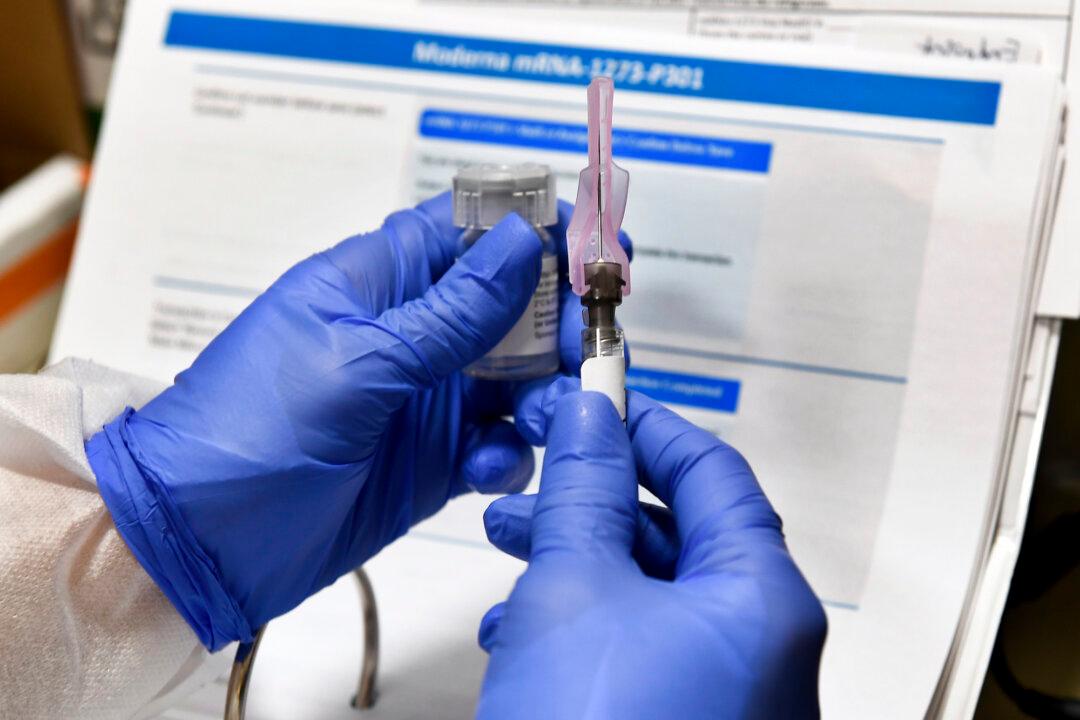A vaccine candidate jointly developed by Moderna and the National Institutes of Health (NIH) has been shown in early results to be 94.5 percent effective.
Biotech company Moderna said in a statement on Nov. 16 that an analysis of its clinical trial by an independent data and safety monitoring board shows that its experimental vaccine is highly effective at preventing infection by the CCP virus.





